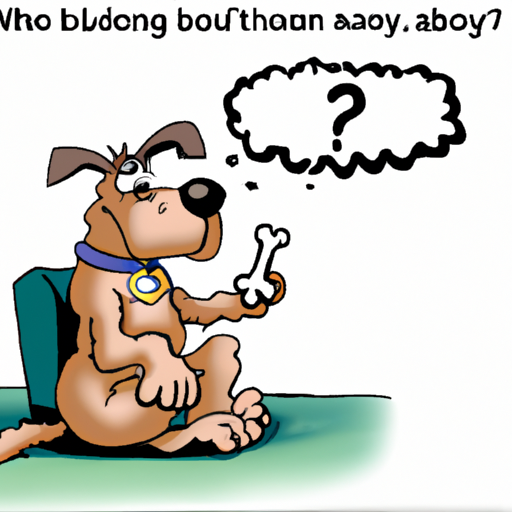Introduction
You’ve probably noticed your furry friend occasionally gnawing at their paws. While it might seem like just a cute quirk to you, there’s usually a reason for this behavior. And as a caregiver, it’s your responsibility to understand why this is happening and what you can do to help.
1. Potential Causes of Paw Chewing
Your dog might be chewing on their paws for a variety of reasons:
- Allergies: Just like humans, dogs can have allergic reactions to certain types of food, medicine, or environmental factors. These allergies can make their skin itch, leading them to chew on their paws for relief.
- Parasites: Fleas, mites, and ticks can cause irritation and itchiness in your dog’s paws.
- Injuries: If your dog has a cut, splinter, or other injury on their paw, they might chew at it to try to alleviate the discomfort.
- Anxiety: Dogs often chew on their paws as a way to cope with stress or anxiety.
Here is a table to summarize the potential causes:
| Cause | Symptoms | Possible Treatment |
|---|---|---|
| Allergies | Itching, redness | Antihistamines |
| Parasites | Skin irritation | Flea/tick treatments |
| Injuries | Visible wounds | Veterinary care |
| Anxiety | Excessive chewing | Behavioral therapy |
2. The Importance of Identifying the Cause
Just as your dog can’t speak up to tell you what’s wrong, you can’t simply ask them why they’re chewing their paws. It’s crucial to identify the root cause, as this will determine the course of treatment. If your dog’s paw chewing is due to an allergy, for instance, treatment might involve changing their diet or medication. If it’s due to anxiety, you might need to explore behavioral therapy or create a calmer environment for them.
3. How to Prevent Paw Chewing
Preventing your dog from chewing on their paws starts with understanding the cause, but there are also some general steps you can take:
- Regularly check your dog’s paws for any signs of injury or irritation.
- Keep their nails trimmed and their paws clean.
- Make sure they’re getting enough exercise and mental stimulation.
- If you suspect allergies, consult with your vet about potential allergens.
4. When to Seek Veterinary Help
Sometimes, despite your best efforts, your dog’s paw chewing might persist or even worsen. In such cases, it’s essential to seek veterinary help. Signs that it’s time to visit the vet include:
- Your dog’s paws are red, swollen, or bleeding.
- They’re limping or showing signs of pain.
- They’re losing hair around their paws.
- The chewing is causing them to lose sleep or appetite.
FAQ
Q: Is paw chewing normal for dogs?
A: Occasional paw chewing can be normal, but if it’s persistent, it may indicate a problem.
Q: Can I use human allergy medicine for my dog?
A: Never give your dog any medication without consulting a vet first.
Q: How can I stop my dog from chewing their paws?
A: Identify the cause and treat it accordingly. Regular paw checks and keeping them clean can also help.
Remember, as a caregiver, your role is to ensure the wellbeing of your furry friend. Understanding why they chew their paws and taking appropriate action can help keep them happy and healthy.



